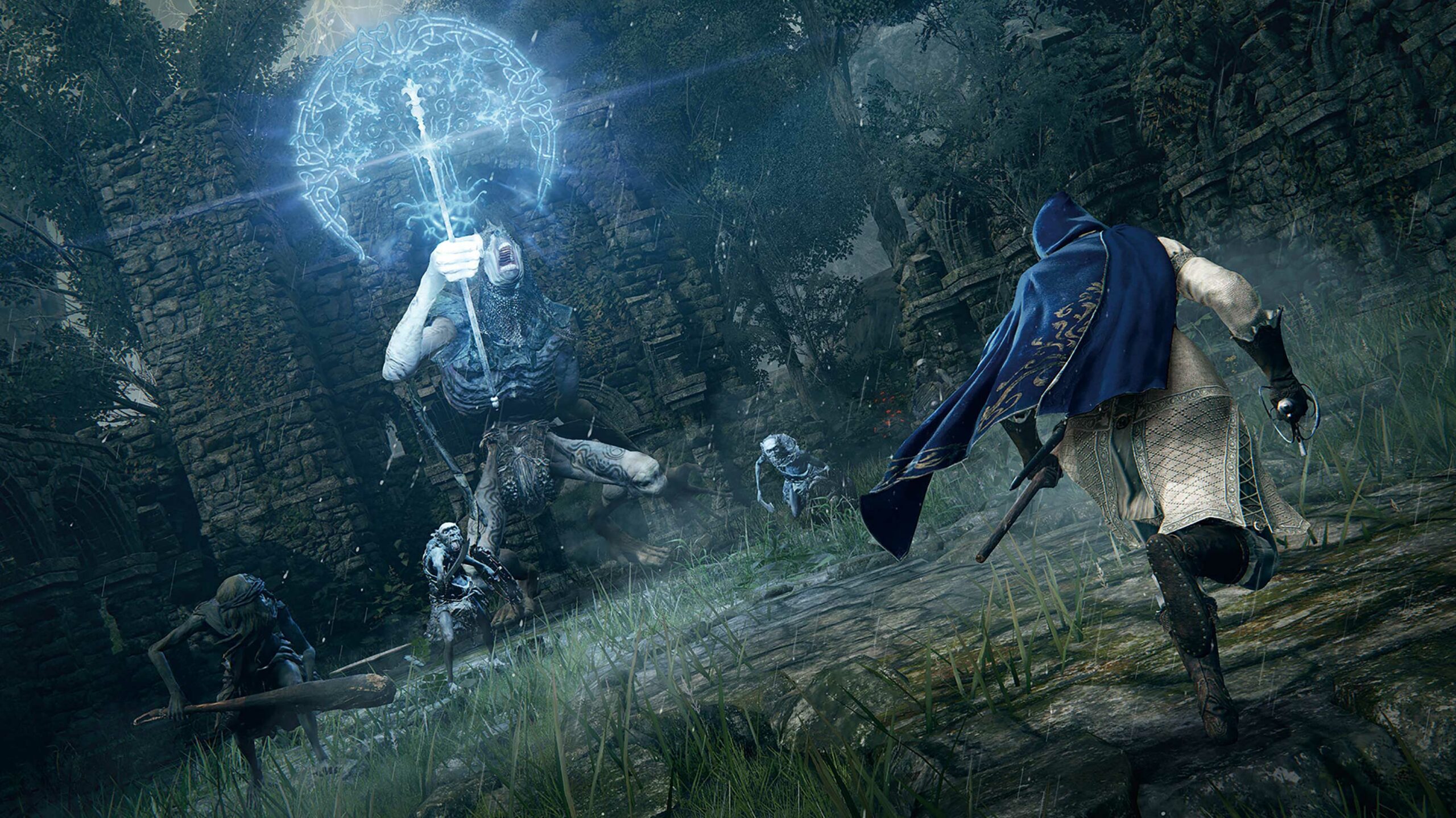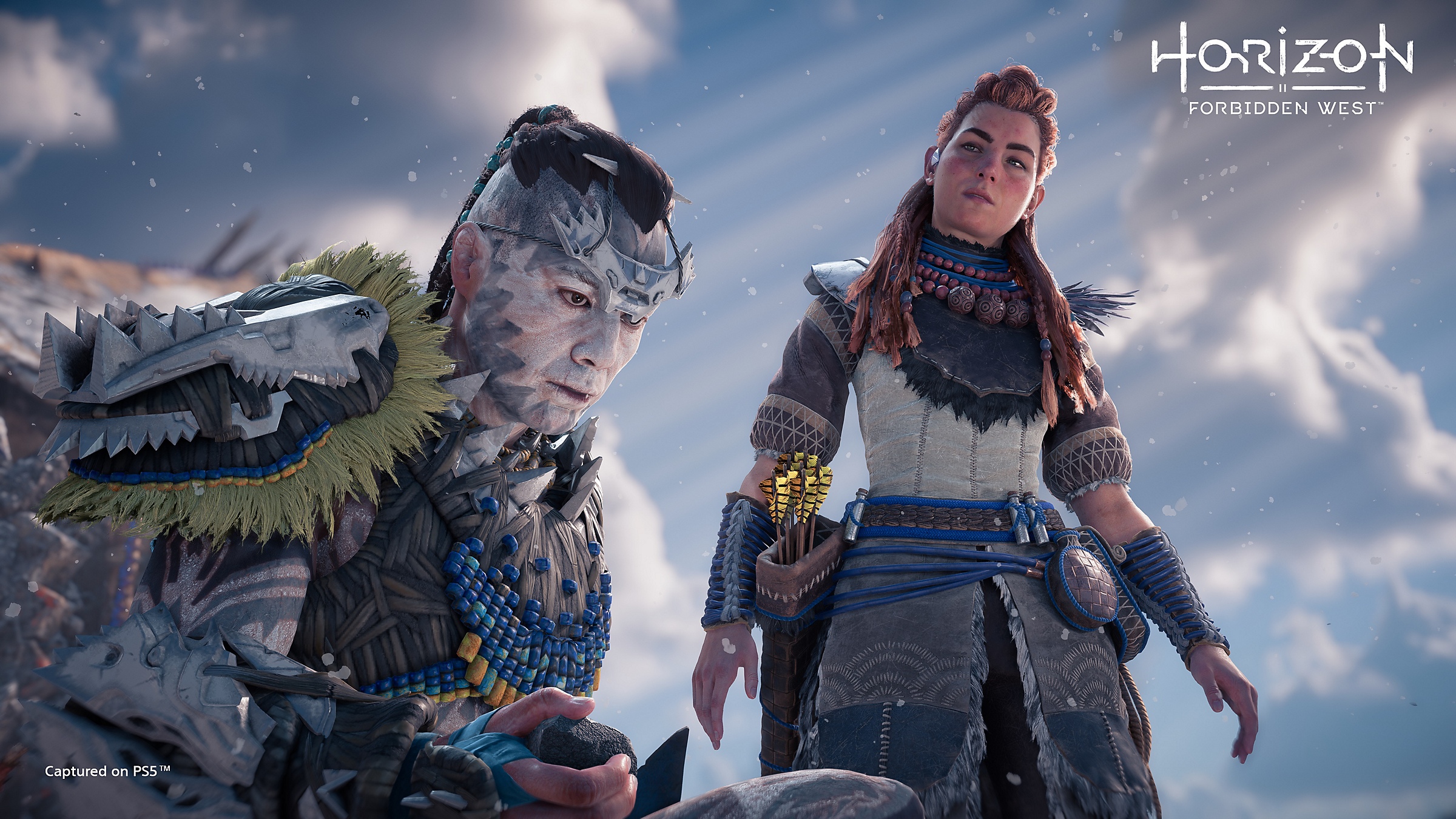
“How do you do, fellow kids?”
These six words, as taken from an older man played by Steve Buscemi on 30 Rock, have become a popular meme whenever a person or company does something out of touch.
It’s also what I often think of whenever I see mainstream news outlets covering video games.
Earlier this week, The New York Times lead consumer tech writer Brian X. Chen published a piece about Elden Ring, Japanese developer FromSoftware’s latest action role-playing game. In it, Chen attempts to explain the success of Elden Ring by drawing parallels to overcoming the struggles of the COVID-19 pandemic and the difficulties of FromSoft’s game. On the one hand, he makes some salient points about the increased need for communion after the last two years, and the ways in which Elden Ring players can team up and defeat challenging in-game enemies.
But he also, rather bafflingly, attributes the game’s smashing success — it’s one of the fast-selling open-world titles to date, as well as one of Metacritic’s all-time highest-rated games — to the pandemic. “It’s difficult to imagine Elden Ring having this sort of cultural cachet in any other era,” writes Chen.
Naturally, many people took to Twitter to point out how it’s reductive, at the very least, to pin this on the pandemic. There are many reasons Elden Ring has been successful: it’s the latest game from the beloved studio behind Dark Souls, Bloodborne and Sekiro, A Song of Ice and Fire novelist George R. R. Martin helped write the game’s lore, and it offers a refreshing, handholding-free take on the open-world genre, to name but a few. That’s to say nothing of the way the game’s open structure makes it, in some ways, more approachable than previous FromSoft games — a fact that makes it more appealing to someone like me, who has fallen off each Dark Souls entry.
But even leading up to the game, anyone who’s been following the industry over the past few years could have told you that Elden Ring would have been a big hit. Hell, Elden Ring beat out the Breath of the Wild sequel — a Zelda game — to be named the Most Anticipated Game for two consecutive years at The Game Awards.
Adding to Chen’s apparent misunderstanding of games was the fact that his piece hilariously used cellphone footage of Elden Ring, instead of official, publicly accessible assets from publisher Bandai Namco. As Vice’s Patrick Klepeck notes, this likely boils down to how many newsrooms and their legal teams don’t understand fair use, especially in the context of video games. Those who play games even somewhat regularly can tell you that Xbox and PlayStation consoles, two of Elden Ring’s supported platforms, even have dedicated controller buttons to allow you to record and share game captures easily.
“Proper coverage is especially needed because the gaming industry isn’t some niche thing”
It’s frustrating to see pieces like these because they misrepresent the industry. To be clear, there is value in the perspectives of people who don’t traditionally play or cover games, especially if they’re framing it as such. I’m not trying to “gatekeep.” For example, we published a wonderful freelance piece from busy family man James Jackson last year about how he renewed his passion for games by playing on Easy Mode — a refreshingly unique perspective that our regular MobileSyrup writers wouldn’t be able to provide. But for Chen to position his Elden Ring write-up as an explainer for NYT readers who maybe aren’t as familiar with games but rather blatantly miss the point is disappointing, to say the least.
The NYT piece is far from the only offender, though. Around the same time that went up, CoinDesk — an outlet that focuses on bitcoin and other digital currencies — published its own questionable take on Elden Ring. Essentially, Chief Insights Columnist David Z Morris tried to rather bafflingly, draw comparisons to Elden Ring and cryptocurrencies. Yes, a video game and a digital currency.
“And Elden Ring’s hypersuccess came only after a long and sometimes lonely process of building and experimenting, made possible with the support of a small, dedicated fanbase, in the face of a horde of uncomprehending (dare I say maidenless) critics. And these weren’t people who simply disliked the games and weren’t interested in playing them. They were people who regarded the existence of these games as a threat. Their strangeness was a personal affront, an attack on an entire status-quo worldview.”
The notion that FromSoft has had a “small, dedicated fanbase” (at least, since Dark Souls) that’s been fighting off a “horde of uncomprehending critics” is flat out untrue. While any game — or any artistic creation, for that matter — will always have its critics, it’s ludicrous to act like FromSoft is an underdog amid consistently strong selling and universally acclaimed games.
Hell, its last game before Elden Ring, Sekiro, won Game of the Year at The Game Awards and from numerous outlets. Personally, I couldn’t care less for cryptocurrency, but if you’re going to make the case that it’s “oh-so misunderstood,” at least don’t make comparisons to some of the most well-regarded games of the last decade.

A December 2021 Bloomberg piece (rather questionably) seemed to suggest that a) Horizon’s Aloy is one of the only examples of a well-realized female character in gaming and b) she’s the “ideal” depiction of women in the medium. (Image credit: PlayStation)
Both Elden Ring pieces remind me of another strange take from a non-gaming publication. In December, Bloomberg technology columnist Tae Kim wrote about the “sexist” depictions of women in gaming. He argued that the industry is slowly making improvements through characters like Horizon Forbidden West’s Aloy, but cited Tomb Raider, Genshin Impact and Bayonetta as examples of games with women in “skimpy outfits.” While not without some merit, this simultaneously ignored how the last 10 years of Tomb Raider games haven’t sexualized Lara Croft as much or how women — including, even, singer-songwriter Lady Gaga — actually like Bayonetta and failed to recognize anything besides Horizon. Ultimately, this is a nuanced issue, which was not done proper justice by Kim suggesting only certain kinds of female characters should exist. Naturally, many pointed out the flaws in that mentality.
In all of these cases, people who don’t generally cover games used a medium they don’t fully understand to make a broader argument. (Notably, Bloomberg also employs one of the gaming industry’s best journalists, Jason Schreier.) It’s especially unfortunate since both the NYT and Bloomberg pieces have the right idea in mind — praising the jolly cooperation of FromSoft titles and calling for greater representation of women in gaming, respectively — but they stumbled in making those points due to a lack of knowledge on the subject matter.
How to improve this
But it doesn’t have to be this way. Responding to the NYT feature, Polygon editor-in-chief and co-founder Chris Plante outlined several smart ways in which mainstream/non-gaming outlets can increase this kind of coverage in an effective way.
https://twitter.com/plante/status/1514260470265376769
Some of his points include assigning ownership of games coverage to a single desk (noting that many publications have people from various divisions taking stabs at gaming) and contracting writers with experience covering games (which also throws a bone to the many freelancers out there). Some mainstream outlets, like The Washington Post, also have their own (really good) gaming verticals. Or, at the very least, if you’re going to write such gaming pieces yourself, maybe just speak to more experienced people instead of making inaccurate statements?
Proper coverage is especially needed because the gaming industry isn’t some niche thing — it brings in roughly $200 billion USD (about $251 billion CAD) every year and has around three billion global players. Clearly, then, a lot of people understand games — why not let them write about them?
Image credit: Bandai Namco
MobileSyrup may earn a commission from purchases made via our links, which helps fund the journalism we provide free on our website. These links do not influence our editorial content. Support us here.


